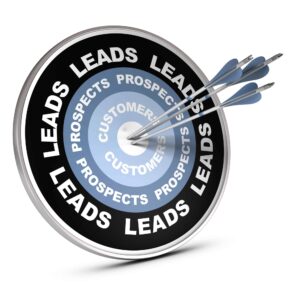How to improve on-page SEO?
Search Engine Optimization (SEO) is an important part of any digital marketing strategy. It helps your website to rank higher in search engine results pages (SERPs), which in turn drives more traffic to your website. On-page SEO is one of the most important aspects of SEO. It involves optimizing individual web pages in order to rank higher and earn more relevant traffic in search engines. In this article, we will discuss some tips on how to improve on-page SEO.
(Looking For “SEM and lead generation“? Contact us today?)

- Title Tags: The title tag is the most important on-page SEO factor. It should include your primary keyword and be compelling enough to entice users to click on your link. Ideally, the title tag should be between 50-60 characters.
- Meta Descriptions: The meta description is a brief summary of the content on your webpage. It should be no longer than 160 characters and include your primary keyword. Make sure the meta description is compelling and accurately reflects the content on your page.
- Header Tags: Header tags (H1, H2, H3) are used to organize your content into sections. They also help search engines to understand the structure of your content. Make sure to include your primary keyword in the H1 tag and use H2 and H3 tags to organize your content.
- Keyword Optimization: Use your primary keyword throughout your content, but don’t overdo it. A good rule of thumb is to use your primary keyword once every 100 words.
- Image Optimization: Images can help to make your content more engaging and visually appealing. However, they can also slow down your page speed if they are not optimized correctly. Make sure to compress your images and include alt text that includes your primary keyword.
- Internal Linking: Internal linking is the practice of linking to other pages on your website. It helps search engines to understand the structure of your website and can also help to improve user engagement. Make sure to link to relevant pages and use descriptive anchor text.
- Page Speed: Page speed is an important factor in both user experience and search engine ranking. Make sure your website is optimized for speed by compressing images, minimizing HTTP requests, and using a content delivery network (CDN).
- Mobile Optimization: With the majority of internet traffic coming from mobile devices, it’s important to make sure your website is optimized for mobile. Use a responsive design that adjusts to different screen sizes and make sure your website is easy to navigate on a mobile device.
- Content Quality: Finally, make sure your content is high-quality, relevant, and engaging. Write for your audience, not for search engines. Create content that is helpful and informative and that answers the questions your audience is asking.
In conclusion, on-page SEO is an important part of any digital marketing strategy. By optimizing your website for on-page factors, you can improve your search engine ranking, drive more traffic to your website, and ultimately, increase conversions and revenue. By following these tips, you can improve your on-page SEO and take your website to the next level.

Recent Comments